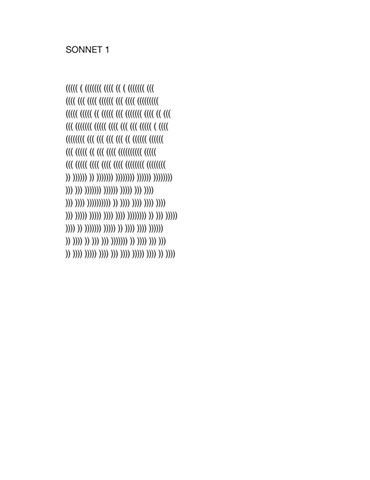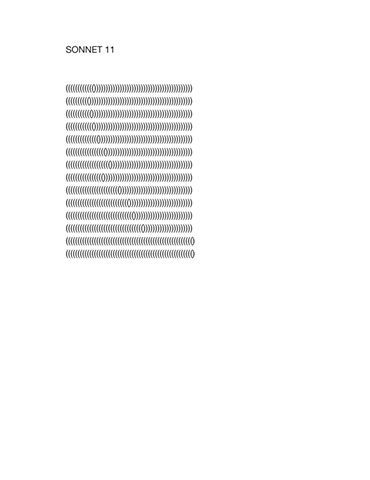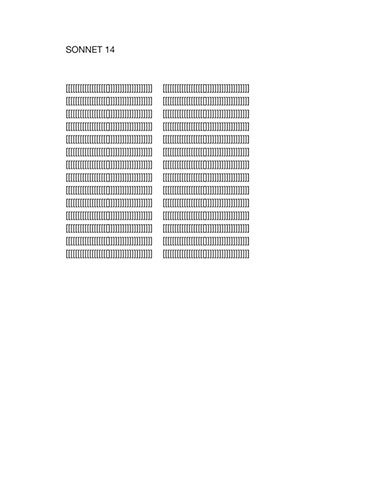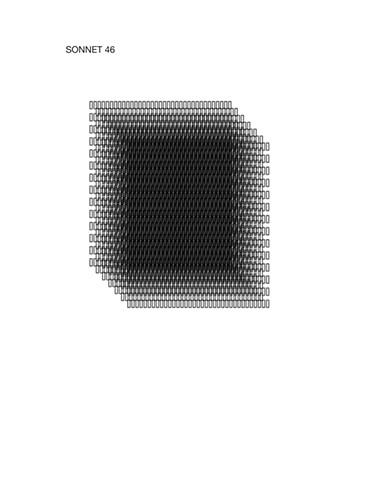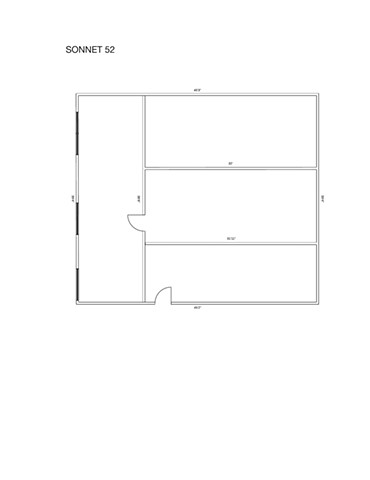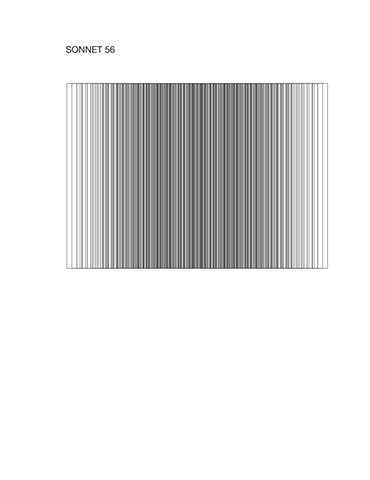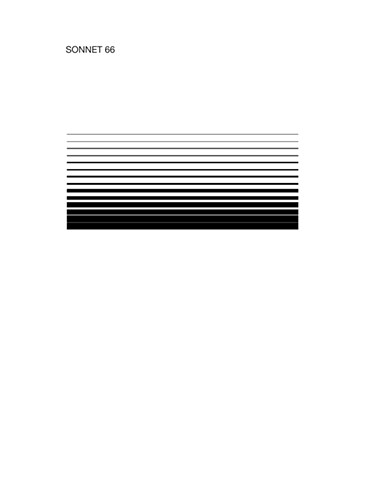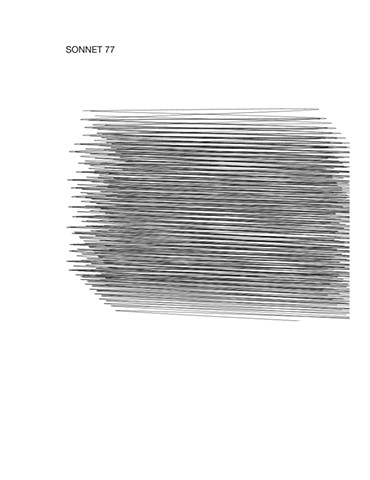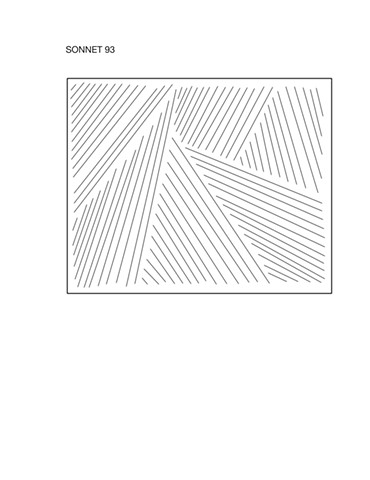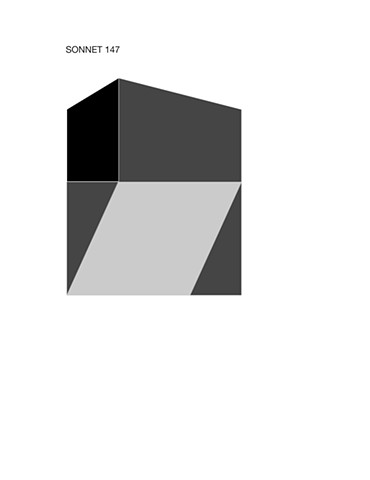Digital Sonnets
Selected from a collection of 154 Digital Sonnets.
STATEMENT ON DIGITAL SONNETS
I wanted to see if I could translate the formal energies of the sonnet into visual abstraction (concrete poetry). I view these sonnets as wordless enactments of the possibilities of the form, considering number of lines and stanzas, meter, rhyme scheme, volta, etc. Leaning into the sometimes precise and sometimes hamfisted tools of a digital cloud-based word-processor (the draw image feature in Google Doc), I have tried to go before the sonnet, to find its original energy and translate it for future sonneteers.
Nick Maurer
2018
Idea: To the Reader of these Sonnets
BY MICHAEL DRAYTON
Into these loves, who but for passion looks,
At this first sight here let him lay them by
And seek elsewhere in turning other books,
Which better may his labour satisfy.
No far-fetch'd sigh shall ever wound my breast;
Love from mine eye a tear shall never wring;
Nor in "Ah me's!" my whining sonnets drest:
A libertine, fantasticly I sing.
My verse is the true image of my mind,
Ever in motion, still desiring change;
And as thus to variety inclin'd,
So in all humours sportively I range:
My Muse is rightly of the English strain,
That cannot long one fashion entertain.
